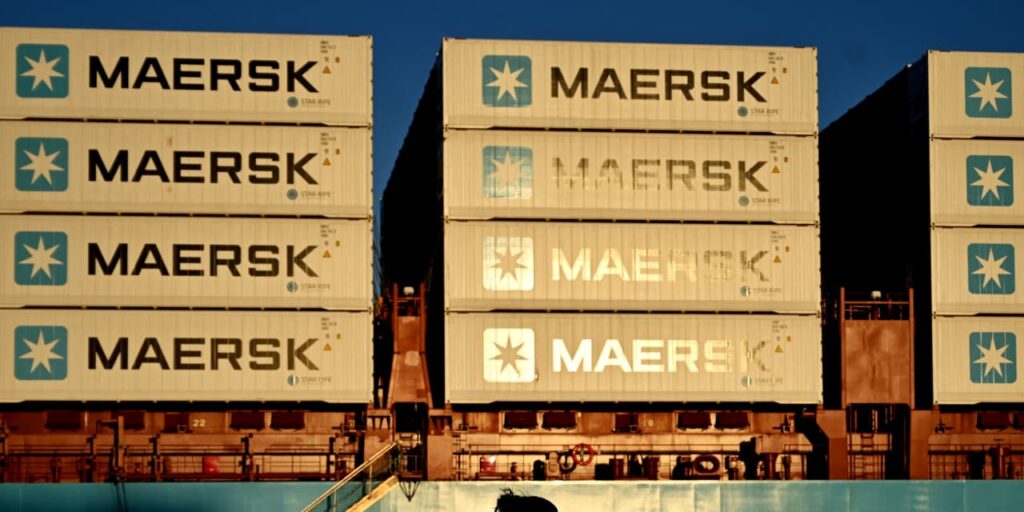Crude futures climbed on Wednesday, but that’s the first gain for prices since the day after Christmas — even as rising tensions in the Red Sea raised the risk of a wider conflict in the Middle East disrupting the flow of oil in the region.
“While oil prices have been little moved by fears of supply disruptions in the Red Sea over the last week, specific unrest in Iran, a key oil-producing country,” led to a rally Wednesday, Matt Smith, lead analyst, Americas, at Kpler told MarketWatch. “Protesters disrupting activity in Libya at El Sharara, the country’s largest oil field, is adding a further bullish influence.”
Futures prices for U.S. and global benchmark oil prices climbed in Wednesday dealings.
West Texas Intermediate crude for February delivery
CLG24,
+3.37%
CL.1,
+3.37%
climbed $2.09, or 3%, to $72.47 a barrel on the New York Mercantile Exchange, while the March Brent crude contract
BRNH24,
+3.16%
BRN00,
+3.16%
traded at $78.06 a barrel on ICE Futures Europe, up $2.17, or 2.9%.
Prices for both benchmarks on Tuesday had posted a fourth consecutive session decline and their lowest settlements since Dec. 13.
Read: Red Sea crisis highlights ‘clear and present danger’ of wider war involving Iran
Iran state media reported explosions and fatalities in Iran near a cemetery where a ceremony was being held to mark the four-year anniversary of the death of Gen. Qassem Soleimani, the head of the Revolutionary Guard’s elite Quds Force. He died in a U.S. drone strike in Iraq in January 2020.
There have also been reports that Libya’s largest oil field has been shut down amid protests. S&P Global Commodity Insights reported that the Sharara oil field has been a frequent target for protesters and armed groups since the fall of former Libyan ruler Muammar Gadhafi in 2011.
Still, oil prices haven’t gotten much of a boost from the hostilities because there has been no impact on production, said Denton Cinquegrana, chief oil analyst at the Oil Price Information Service (OPIS), a Dow Jones company.
He believes the “biggest impacts are on shipping costs and time,” rather than risks to passage of oil tankers through the Red Sea.
Attacks on vessels in the Red Sea, blamed on Houthi militants, an Iran-backed rebel group in Yemen, had led major shipping companies in mid- to late-December to halt shipments through the waterway, which is a key route for oil, refined products, and other consumer goods.
The shelling of container ships and oil tankers in the Red Sea by Houthi rebels has recently “increased the risk of supply disruptions, which is likely to have been one reason for the [oil] price increase since mid-December,” analysts at Commerzbank wrote in a note dated Wednesday.
Some shipping companies are now avoiding the affected strait and are instead taking the much longer route around the Cape of Good Hope, which “not only extends delivery times by 10-12 days, but also increases transportation and insurance costs,” they said.
As a result, the Brent forward curve has “flipped back into backwardation after showing a contango structure in the first six forward contracts in the first half of December,” they said.
Backwardation refers to a situation in crude contract values where prices for oil for delivery in the near future are higher than those for later deliveries. In contango, prices for future delivery rise above the spot market, which can encourage traders to store oil.
The situation in the Red Sea has become even more tense at the beginning of the new year, the Commerzbank analysts said.
Iran reportedly dispatched a warship to the Red Sea after the U.S. military, over the weekend, sank three boats operated by Houthi rebels which had been blamed for an attack on a Maersk-operated cargo ship.
In market commentary, Stephen Innes, managing partner at SPI Asset Management, said Iran dispatched a 51-year-old frigate, which is a type of warship, to monitor Red Sea shipping lanes.
“The situation reflects a pattern of Iranian propaganda that lacks sophistication, cunning, or polish,” he said.
Still, analysts at Commerzbank said the action by Iran “could result in further restrictions on this important seaborne oil trade route to the West and thus lead to a rising oil price.”
Williams Watts contributed to this report.
Read the full article here

